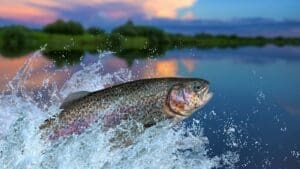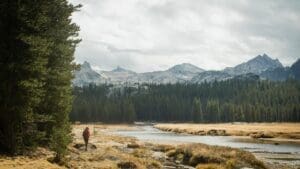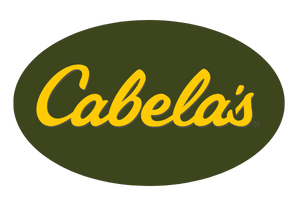Camping and Fishing: The Ultimate Outdoor Experience
Few outdoor pursuits capture the spirit of adventure quite like camping and fishing. Each offers its own rewards: the peace of a crackling fire under the stars, the thrill of reeling in a catch from still waters at dawn. But when you combine them, you unlock something truly special — a complete immersion in nature that nourishes both body and soul. This guide explores why camping and fishing pair so well together, how to prepare, where to go, and what makes the combination the ultimate outdoor experience.
Why Camping and Fishing Belong Together
Camping and fishing are natural companions. Fishing provides an active, purposeful pursuit during the day, while camping extends the adventure into the evening and night. Together, they create a rhythm of outdoor living that feels timeless. You rise with the sun, fish the morning waters, cook your catch over an open flame, and fall asleep under the stars. It is a cycle that humans have followed for thousands of years.
Fishing while camping also simplifies logistics. Instead of needing to return home after fishing, you remain close to the water. You can fish at prime times — dawn and dusk — without worrying about long drives back to civilization. This allows more time to relax and enjoy the outdoors without rushing.
Perhaps most importantly, combining camping and fishing allows you to unplug from daily life. The more time you spend outdoors, the easier it becomes to leave behind screens, notifications, and stress. By merging these two activities, you give yourself permission to slow down and reconnect with the natural world.
Choosing the Perfect Location
Not every camping spot lends itself to great fishing, and not every fishing destination is suitable for camping. The magic happens when you find a location that offers both. Here are some key considerations when choosing:
Access to Water
This is the obvious one — your campsite should be near a river, lake, or coastline where fishing is allowed. Being within walking distance makes it easy to fish multiple times a day without packing up camp.
Campground Amenities
If you prefer comfort, look for campgrounds with fire rings, picnic tables, and restroom facilities. For a wilder experience, dispersed camping in national forests or backcountry areas can provide solitude and closer contact with nature.
Fishing Regulations
Always check local laws regarding licenses, species limits, and seasonal closures. Choosing a location with clear, accessible regulations ensures you stay legal while enjoying your trip.
Variety of Fish Species
Part of the fun is targeting different species. Lakes might offer trout, bass, or walleye. Rivers could hold salmon or catfish. Coastal areas open the door to saltwater species like redfish, flounder, or striped bass. Consider what excites you most and plan accordingly.
Essential Gear for a Fishing and Camping Trip
Blending camping and fishing requires some strategic packing. Too much gear will weigh you down, but forgetting key items can limit your enjoyment. Here are essentials for both activities:
Fishing Gear
A versatile spinning rod and reel combo works well for most species. Bring a small tackle box with a mix of lures, hooks, bobbers, and line. Don’t forget extras like pliers, a stringer or cooler, and a landing net. If you plan to fly fish, pack your fly rod, flies, and waders.
Camping Gear
At minimum, you’ll need a tent, sleeping bag, sleeping pad, and a reliable method for cooking. A camp stove is handy, but nothing beats grilling your catch over a campfire. A headlamp, knife, and first aid kit are also must-haves.
Dual-Purpose Items
Some gear works for both camping and fishing. A good multi-tool, waterproof bags, and a strong cooler will make life easier. Waders can double as rain protection around camp. Lightweight chairs are perfect for both the campfire and the shoreline.
Setting Up Camp Near the Water
The proximity of your campsite to the water can make or break your experience. Too close, and you risk flooding or excessive insects. Too far, and you lose the magic of hearing the water as you fall asleep. Look for elevated ground near the shore with flat terrain for pitching a tent.
Organize your camp so that fishing gear is stored neatly and ready to grab. Create distinct zones: one for sleeping, one for cooking, and one for gear. This keeps things safe and prevents chaos when you’re eager to fish at sunrise.
Always respect Leave No Trace principles. Avoid trampling vegetation, and pack out all trash. A clean campsite not only protects nature but also enhances your experience of the outdoors.
The Joy of Cooking Your Catch
Perhaps the most rewarding part of combining camping and fishing is turning your catch into a meal. Cooking fish outdoors requires little equipment but rewards you with flavors that are hard to replicate indoors.
A simple method is to wrap cleaned fish in foil with butter, lemon, and herbs, then place it over hot coals. Another option is to cook fish directly on a grill grate or cast-iron pan. For a rustic touch, spear a fillet with a stick and roast it over the flames.
Don’t forget side dishes. Potatoes, corn, or fresh vegetables cook beautifully over a campfire. Add in some fresh bread or rice, and you’ve created a feast worthy of the wilderness.
Daily Rhythms of a Fishing and Camping Trip
One of the joys of this lifestyle is the natural rhythm it creates. Early mornings often bring the best fishing. After a hearty breakfast, you can fish again, hike, or explore the surrounding wilderness. Midday is perfect for relaxation — reading, napping, or swimming. As evening approaches, you can fish again during prime feeding times, then return to camp for dinner and stories around the fire.
This pattern allows you to balance productivity with rest. It also syncs your body to the cycles of the sun, something rarely experienced in modern life. By the time you return home, you feel refreshed and reconnected.
Safety Considerations
Fishing and camping come with risks that should not be ignored. Always carry a first aid kit and know basic emergency procedures. Be mindful of weather conditions, as storms can quickly change water levels and fishing conditions. Wildlife awareness is also crucial — store food securely to avoid attracting bears or raccoons.
When fishing near water, wear a life vest if you’re in a boat or wading into strong currents. Never underestimate the power of moving water. Share your plans with someone before heading into remote areas, and carry a map or GPS device.
Stories, Memories, and Community
Beyond the logistics, what makes combining camping and fishing so powerful are the stories you create. Each trip brings unexpected moments: the first fish caught by a child, the sudden splash of a leaping trout, the laughter around a fire. These memories stick with you long after the trip is over.
Fishing and camping also foster community. Whether you go with friends, family, or meet strangers at a campground, the shared experience builds connections. Teaching someone to bait a hook or showing them how to clean a fish is an act of mentorship that strengthens bonds.
Tips for First-Time Fishing Campers
- Start small — try a weekend trip to a nearby lake rather than a week-long backcountry adventure.
- Pack light but smart. Focus on essentials and multipurpose items.
- Plan meals in advance so you aren’t stressed about food if the fishing is slow.
- Bring extra clothing layers — mornings near water can be surprisingly cold.
- Practice your knots and casting before you go so you spend more time fishing, less time troubleshooting.
The Spiritual Side of the Experience
There is something deeply spiritual about sitting beside water with a fishing rod while a campfire smolders nearby. The combination speaks to ancient instincts — to hunt, gather, and make shelter. It strips life back to essentials and creates room for reflection. Many anglers describe a sense of peace or mindfulness during these trips, a meditative quality that is hard to find elsewhere.
When you combine camping and fishing, you give yourself permission to be still, to watch the sunrise, to listen to the night sounds, and to appreciate your place in the natural world. That perspective can be life-changing.
Planning for All Seasons
Spring brings thawing rivers and hungry fish, but also mud and unpredictable weather. Summer offers warmth, long days, and abundant opportunities for swimming after fishing. Fall provides crisp air and spectacular colors, with fish feeding heavily before winter. Even winter camping and ice fishing can be rewarding for those prepared with the right gear.
Each season changes the experience, and planning accordingly ensures comfort and safety. Bring appropriate clothing, shelter, and equipment for the conditions you expect.
Conclusion: The Ultimate Outdoor Experience
Combining camping and fishing creates more than just a hobby — it creates a way of life. It challenges you to slow down, live deliberately, and embrace both the work and the rewards of outdoor living. You catch your food, cook it with your own hands, and sleep under the stars. You discover not only the rhythms of nature but also your own resilience and capacity for joy.
Whether you are a seasoned angler, a casual camper, or someone looking to escape the busyness of modern life, this combination offers something profound. It is more than a trip — it is a return to something fundamental, something we all crave: connection, simplicity, and adventure.








